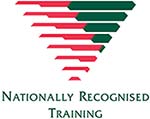Step from a diploma into Year Two of this 2-year psychology degree
By choosing to study psychology, you could make a real change in the lives of those who need help.
At Chisholm, we focus on non-traditional entry into our Bachelor of Psychology—to become a psychology student with us, you only need to complete a diploma in a related field.
Uncommon for a psychology degree, ours will take you two years to complete (instead of the usual three) if you already have a relevant diploma. Rest assured that it is fully accredited by the Australian Psychology Accreditation Council.
Pathway to a psychology degree
• Enter the Bachelor of Psychology from high school, via a diploma, without an ATAR.
• Successfully completed a diploma in health, allied health, nursing, community services, social services or early childhood education? Enter Year Two of the Bachelor of Psychology.
If you don’t already have a Diploma you can earn your Diploma at Chisholm - we offer courses from Certificates to Degrees to help you pathway to your Degree.
What you'll learn
• Human behaviour, learning, memory, cognition, language and perception.
• Psychological health, wellbeing and disorders.
• How to solve complex problems in the behavioural sciences and psychology.
• Developing a professional practice that is ethical and culturally sensitive.
• Neuroscience and the biological bases of behaviour, and much more!
How you'll learn
• At state-of-the-art facilities on Frankston campus.
• Through assessments including essays, literature reviews, oral presentations, poster presentations, executive summaries and take-home exams.
Timetable
• Full-time—Blended, One day per week at the Frankston campus and online classes—allowing you to continue working while studying.
Accreditation
The Chisholm Bachelor of Psychology is accredited by the Australian Psychology Accreditation Council (APAC). Once you successfully finish this course, you can continue with postgraduate studies to become a registered psychologist with the Australian Health Practitioner Regulation Agency (AHPRA).

Further information about Chisholm's accreditation as a Higher Education provider can be found at Tertiary Education Quality and Standards Agency (TEQSA). Chisholm Higher Education College participates in surveys administered by Quality Indicators in Learning and Teaching (QILT).
Download the course entry requirements.
- Award granted
- Bachelor Degree (Pass)
- Course code
- CRS1401150
- Delivery location
- Frankston
- International
- Go to International students page
- Length
- Full Time, 2 years. Part Time, 4 years.
- Start dates
- 3 March, 28 July
This course is accredited by the Tertiary Education Quality and Standards Agency (TEQSA) and aligned to Australian Qualification Framework (AQF) Level 7.
Please note: Students may be required to undertake an assessment of their literacy and numeracy as part of their application process.
 Chisholm is a Registered Training Organisation (RTO) and provides Nationally Recognised Training (NRT). This means you can be assured that our training will provide you with a qualification that is recognised and respected across Australia.
Chisholm is a Registered Training Organisation (RTO) and provides Nationally Recognised Training (NRT). This means you can be assured that our training will provide you with a qualification that is recognised and respected across Australia.
Chisholm courses are subject to minimum and maximum group numbers. Courses may be cancelled or postponed if minimum numbers are not achieved by the start date of the course. Courses may close prior to the start date if the maximum numbers are reached. In that situation, eligible applicants will be offered a place in the next available intake.

